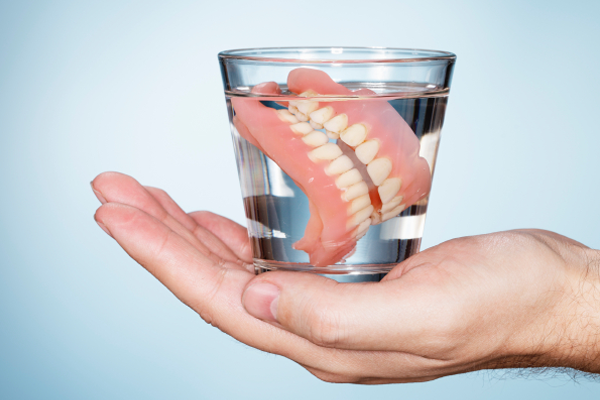
Avoiding going to the dentist is the basis of stand up comedy routines and sitcom plots galore. But in reality, avoiding the dentist is no laughing matter.
In fact, failing to keep up with routine dental cleanings and examinations can leave you vulnerable to many health risks that go far beyond potential pain from a neglected cavity or an impacted wisdom tooth. As the following list highlights, some serious medical conditions are often flagged first by your dentist.
A mouth full of warning signs
Many serious diseases present symptoms your dentist will recognize:
- Unexplained tooth loss and receding gums
- Chronic mouth sores
- Chronic inflammation of the gums
- Dry mouth
In turn, health conditions have been linked to symptoms in the mouth:
- Heart disease and stroke
- Respiratory conditions
- Infections
Loss of teeth
 It's important to practice proper dental care to avoid extreme issues like tooth loss.
It's important to practice proper dental care to avoid extreme issues like tooth loss.
According to the Center for Disease Control and Prevention, 25% of adults over the age of 60 no longer have any natural teeth.
While losing teeth is not necessarily life-threatening, it can drastically affect a person’s quality of life. Those who no longer have their own teeth and do not have replacements have a difficult time obtaining enough adequate nutrition, as so many foods in a balanced diet are difficult or impossible for them to eat.
"25% of adults over the age of 60 no longer have any natural teeth."
Considering that periodontal disease and tooth decay, both of which are treatable with regular dental care, are the leading causes of tooth loss, these situations can be avoidable.
Oral cancer
According to the Oral Cancer Foundation, “close to 48,250 Americans will be diagnosed with oral or pharyngeal cancer this year.”
The report explains: “Historically the death rate associated with this cancer is particularly high not because it is hard to discover or diagnose, but due to the cancer being routinely discovered late in its
development.”
More often than not, problems associated with oral cancer can be discovered by a dentist during a routine examination.
Unlike other cancers, oral cancer may not be necessarily painful or noticeable (especially early on) to the untrained eye, making it easy to go undiagnosed in those who avoid going to the dentist.
Complications with chronic dry mouth
 A frequently dry mouth can be an indication of a medical problem.
A frequently dry mouth can be an indication of a medical problem.
While dry mouth may seem pretty insignificant, it’s actually a potentially serious precipitator of a number of painful and irritating conditions. The reason this proves to be a risk of avoiding dental care is because dry mouth can be caused by many different reasons, ranging from serious diseases like diabetes to side effects from prescription medication.
If you experience chronic dry mouth that lasts days or more, you are far more likely to experience mouth irritation, cavities, and gum disease. These issues can cause pain, discomfort, inconvenience, and even the possibility of further health deterioration down the road.
Possible increased risk of dementia
Some studies have shown that periodontal disease, and specifically infection in the gums, can have a detrimental effect on the body because the infection can spread and the immune system can be affected. This is more of a risk if the individual already has a compromised immune system, such as a diabetic or someone who is older.
Since leading theories surrounding the cause of dementia, Alzheimer’s disease, and other forms of memory decline indicate infection plays a role, it makes sense that tooth loss due to infection has been linked with a greater chance of developing some level of dementia as we age.
These are just a few of the potential risks you could be exposed to when avoiding going to the dentist over a long period of time. Whether it’s fear that’s holding you back, or cost associated with dental visits, it’s important to make routine dental care a priority for your health. Looking for ways to save on dental care? Contact us to find out how our dental discount card can help you save up to 50% on your dental care costs.
